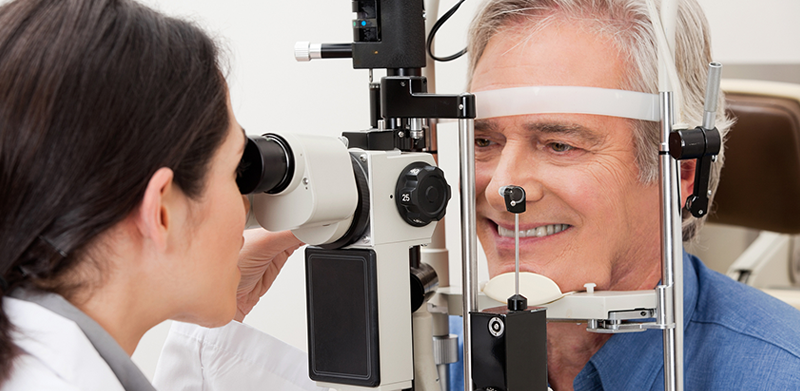Glaucoma is a category of eye disorders linked to dangerously raised internal eye pressure. The buildup in eye pressure can damage the eye’s optic nerve disrupting the transmission of visual information to the brain. Early stages of untreated glaucoma include a loss of your peripheral vision and progressed eye damage could eventually lead to blindness.
Most cases of glaucoma are not typically associated with pain and also produce no noticeable symptoms until vision loss occurs. Because of this, many cases go unnoticed until irreversible optical nerve damage has occurred along with a range of permanent vision loss.
There are two main types of glaucoma: open-angle glaucoma and closed-angle glaucoma. Open-angle glaucoma accounts for most cases. It is painless and the only signs are gradual loss of peripheral vision and optic nerve changes. Closed-angle glaucoma accounts for a small percentage of glaucoma cases. Closed-angle glaucoma symptoms include sudden eye pain, halos around lights, red eye, increased eye pressure, nausea and a sudden loss of vision. Closed-angle glaucoma is considered an eye emergency and should be handled by a professional to prevent permanent vision loss.
Routine eye exams include a screening for glaucoma using a machine called a tonometer. The tonometer is used to measure the pressure inside your eye. One of the most common tonometers use a puff sent onto the surface of the eye to test the internal pressure. Another method of glaucoma screening involved advanced imaging technology that monitors the eyes optic nerve over the course of your exams to ensure that no changes have occurred. Visual field testing is another way to determine loss of peripheral vision. It involves staring ahead while holding a button that will allow you to click when you see a flashing light in the edges of your vision. The test catches any blind spots that may develop as a result of damage to the optic nerve as a result of glaucoma.
Glaucoma treatment can involve surgery, or the use of lasers and/or medication depending on the progression. Eye drops with medication are one of the first forms of treatment used that aim to lower the internal pressure of the eye.
If you suspect you have glaucoma, and you live in or around Tulsa, feel free to contact our office to schedule an eye exam with one of our doctors today. We will gladly answer any of your questions and provide you with the best treatment options available to you. If you experience any pain nausea or sudden vision loss, please call our offices immediately.

